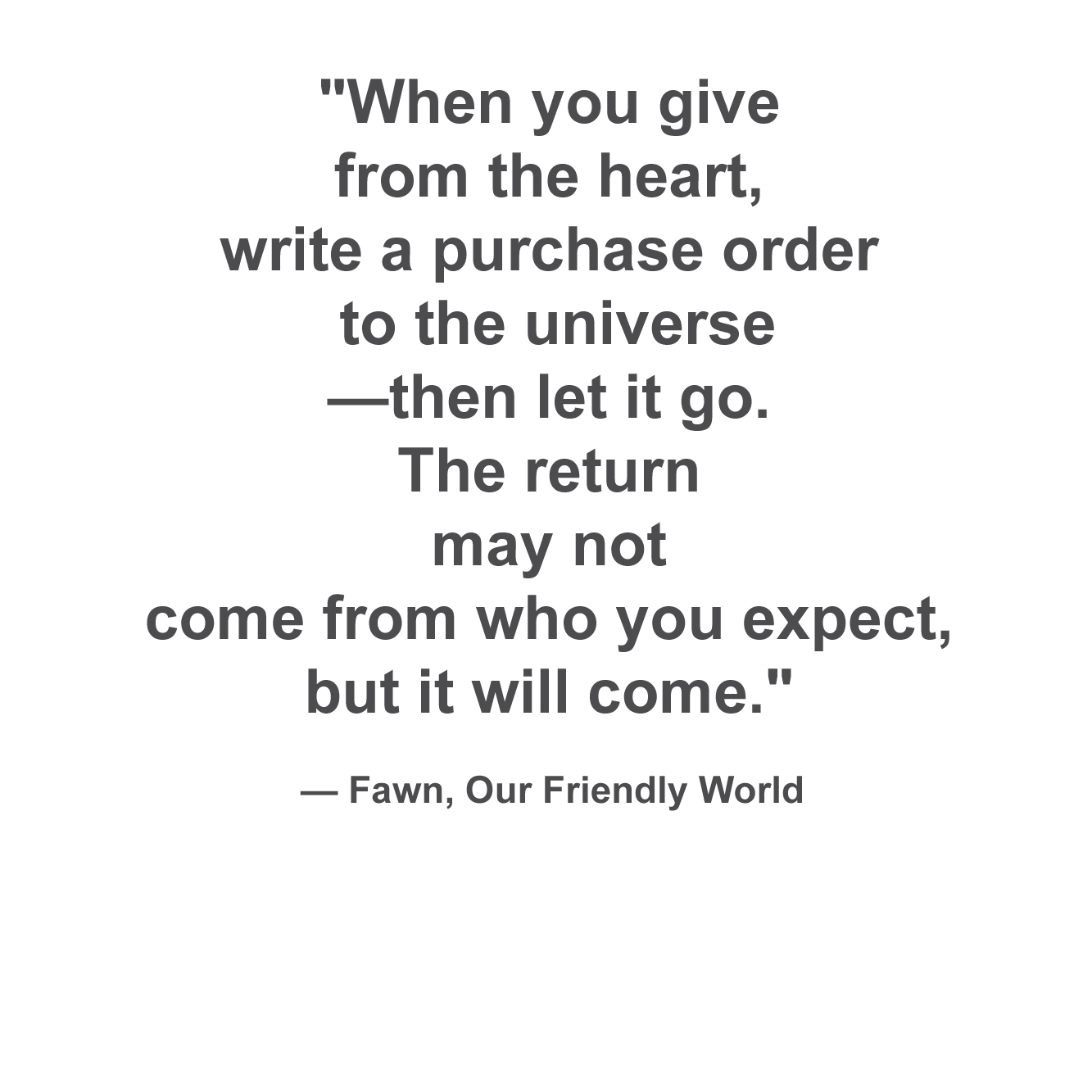Today's Pearl has to do with fine lines and the path that we walk on. We discuss having the intention, awareness, and the wherewithal of knowing how we walk in the world. One of those paths we referred to as “A.W.O.L.” which in Santa Monica, California, stood for “Always West of Lincoln”.
Then there’s the Camino de Santiago (the Way of St. James) which is a large network of ancient pilgrim routes stretching across Europe and coming together at the tomb of St. James (Santiago in Spanish) in Santiago de Compostela in north-west Spain. We talk about this path and Fawn talks about listening to Caroline Myss and her experience as she walked part of this path and the insight she (Caroline Myss) shared.
There's a fine line to everything. We can walk on a path and if we veer even one step to the left or the right, we’ll have a completely different experience. As a photographer, Fawn is especially true in her field of art and how looking at the same thing, we will all have a completely different perspective.
Matt: “I think generally speaking, when you're walking the path, you're meant to walk, it feels easy. It feels comfortable. It feels right…and so it's about trying to find where that spot is or where that path is.”
Fawn: “I felt like a needle in an acupuncture session (there are some paths and places that I feel perfectly in tune with and others I pop out of and just don’t belong in)…it's just taking into consideration everything that's involved; even the forces that you may not be aware of, that you can't see, you have to feel for it.”
On today's episode, we are talking about foundation - Isaac Asimov's “Foundation”. Matt explains the story and explains how Asimov is one of the great classic science fiction writers (science fiction writers of the 1940 and 50s were the seers of our society).
Fawn’s take on Asimov and the questions that arise for her are: what are we fighting for? What is it that we're striving for? What are we going to create as far as a society in which there's balance, truth, and something symbiotic. How are we going to create that?
Once again, we bring in Aristotle and his Nicomachean Ethics (the three kinds of friendship) and bring it into focus as it relates to Asimov’s “Foundation” story. Aristotle pointed out the three forms of friendship as 1), there are those who love you because you are useful to them. 2), there are those who love you because your company provides them with pleasure. 3), is what Aristotle says is when you know, you have true friendship, like lifelong friendship that will withstand: those who love you because you're a good person.
In relation to the Nichomachean ethics and relating Aristotle’s ethics to Asimov’s Foundation: it's all about knowing who we are, knowing how we are useful, knowing how we are of service, and knowing how we make other people feel.
Matt shares a painful lesson about a work relationship.
Matt’s advice is to focus your attention where it matters and figuring out where it matters can be a tricky thing.
Matt: “…and if you want to look at it, very digital and hard and logical and everything else, same goes for friendships. You know, you cast your net out upon, across the waters it feels like to me sometimes. And sometimes you catch a fish and sometimes you don't. And where you don't, where you don't get something back; if your friendship is strictly a one way street, it's maybe not a friendship.”
Fawn explains that to know if there is balance is key, and using Aristotle’s ethics we can save so much time and heartache because once we are in the beginning of getting to know another person, we can (in a non-charged way), look at a situation and figure out which of these three is happening. At this point and using Nichomachian tools, we're not emotionally attached, so we're able to see clearly. We're not going to get all bent out of shape when we realize a person is just using our friendship for their own selfish reasons. This works in business also.
Matt brings up Herman Hesse and examples (33 minute point) of different forms of attachments, where friends rely on each other’s gifts and how these types of friendships have been beneficial and have been the way of things for thousands of years (once again Matt is respectfully in disagreement to Fawn and Aristotle’s point of view).
The “Foundation” story becomes the example of how we are today, in our society, and how we take care of ourselves and each other. How does “CONVENIENCE” play a major factor? How is “convenience” related to WWII and our present state? How can we create a better life? How can we create change? Fawn and Matt share their ideas.
www.ourfriendlyworld.com

In this short and soulful episode of Our Friendly World with Fawn and Matt, we explore the concept of a purchase order—not just in...

We're talking about the art of the story and how stories shape our lives. Does every story really come down to the two basic...

A toast: "Here's to those who wish us well, and those who don't can go to hell." Don't let those turkeys get you down....